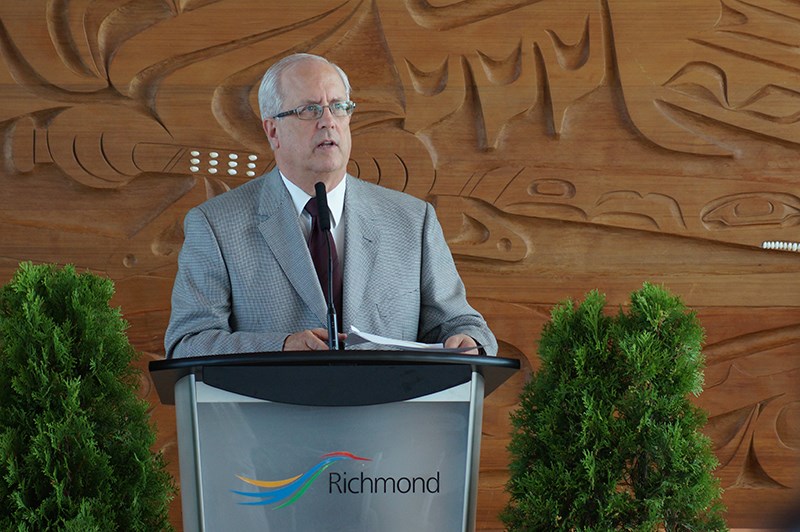It was a surprise for many people when Mayor Malcolm Brodie lost the bid for the chair of Metro Vancouver last Friday.
Former Burnaby mayor Derek Corrigan was ousted in the last municipal election, so Brodie, the most senior mayor in the region who has taken many responsibilities in Metro Vancouver, was generally thought to be the frontrunner.
However, he was defeated by long-time Burnaby councillor Sav Dhaliwal in a secret ballot voted on by all board members.
North Vancouver councillor Linda Buchanan became the new vice chair, after Vancouver councillor Raymond Louie exited municipal politics.
“Whatever. Sav Dhaliwal is a capable guy, he is going to be a good chair, so it’s good,” said Brodie to the Richmond News.
“You put your name forward. If it doesn’t work out, that’s the way it is.”
When asked how he felt about the loss, the long-time leader said “I’m absolutely fine.”
Although Brodie said he has no idea “why anybody voted any which way,” speculation is rife that his criticism over the Surrey SkyTrain plan caused him to lose at last minute.
“I didn’t expect it (Brodie losing) to happen, but I’m not surprised knowing the circumstances,” said Coun. Harold Steves, who represents Richmond as the second director at Metro Vancouver.
“I supported Malcolm, so I’m biased, but I think what happened is Malcolm was quite outspoken about Translink the day before, and I think Surrey and Delta put pressure on getting somebody else to be the chair.”
The day before the vote, Surrey council asked at the Mayors’ Council meeting to cancel the light rapid transit (LRT) in Surrey approved by TransLink and Metro Vancouver before and, instead, get funding for a Skytrain extension to Langley. This was agreed upon by most mayors.
“Fifteen million dollars have already been spent on the ground level system, so the $15 million is wasted. And the Skytrain system will be many millions more than the ground system,” said Steves.
“Malcolm was pretty critical of that, and suffered the consequences. But I think he was right in saying what he has said. I support him for that.”
Steves also suspects that Vancouver council, which has the biggest amount of votes on the Metro Vancouver board, also supports building more SkyTrain in the city, which might have put them in line with Surrey council.
“They both want to go for a much more expensive system than what was originally planned (LRT), so I think that’s the reason the mayor didn’t make it,” he said.
Steves said Brodie would have been the most experienced person to take the position, but Dhaliwal, who has also been on the board for many years, “will do a good job as well.
“I’m a bit upset that the mayor didn’t get it, but we will manage,” said Steves.
Former Richmond mayor and long-time politician Greg Halsey-Brandt served as the chair of Metro Vancouver for three years in the 1990s.
In an October interview with the News, Halsey-Brandt said if Brodie was chosen to be the new chair, Richmond might benefit from it.
“There are lots of opportunities when you are the chair to work on larger projects that cost a lot of money from the provincial and federal governments,” he said.
“You will be involved in much more consultation about spending money from those levels of government, including on potential projects of rebuilding the tunnel or extending the Canada Line further into Richmond.”
But Steves doesn’t agree, saying “all decisions are done by vote, so it doesn’t matter who the chair is.
“It (being the chair) would take Malcolm a lot of time and he will have less time to devote to Richmond,” said Steves.
“So from that point of view, (losing) is not a bad thing, because he can present Richmond issues to Metro Vancouver rather than worrying about representing the whole region.”



